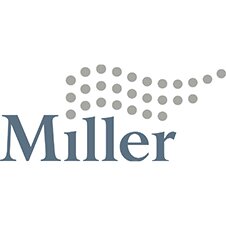Indsutry interview with Miller Insurance Services: Stake your claims
This article was originally featured as an insdustry interview in the July 2017 issue of LPM. To read the issue in full, download LPM.
Professional indemnity insurance is a vital but often costly necessity for SME law firms. For the past few years, firms have benefitted from reasonably low rates – but with the October renewal date fast-approaching firms shouldn’t rest on their laurels, despite a ‘soft’ PII market.
Richard Brown, head of solicitors’ practice at Miller Insurance Services, says everything seems “rosy” now, but legal businesses shouldn’t be complacent.
“It’s important for firms to understand that the insurance market is cyclical and one of the main catalysts when it comes to claims is the economy. While work may be coming in and fees are increasing, it’s now that firms could be making mistakes that will come back to haunt them if the economy turns.”
Although there are many high-quality insurers in the market and the unratedinsurer issue has largely passed, Brown adds that it’s worth considering how long an insurer has been in the PII market and how committed they are to it.
“Those who have been in the market for a long time have seen these issues come and go and understand the long-term nature of providing stable cover.” He adds that there are several ways SME firms can prepare for the upcoming renewal season – which will help them to harvest better broker-client relationships in the future.
RENEWED CALM
The past few years have seen changes in the insurance market – including firms’ ability to move their PII renewal date to fall in line with their financial year-ends.
Brown says: “We’ve seen a movement in term length and dates. More firms are taking on 18-month policies and favouring, for example, 1 October followed by 1 April as renewal dates. It’s appealing to smaller firms to get PII off their agendas for a longer period and lock in favourable rates.” He adds that this has also caused underwriters to gear up for year-round performance – which means “insured firms get more attention from better-quality underwriters.”
Not all change is easy. Regulatory upheaval brought about by the EU’s Fourth Anti-Money Laundering Directive is impacting professional indemnity and forcing firms to do more to manage risk. Brown says firms already have to change processes considerably to meet the requirements of these new anti-money laundering rules – and will soon face more change when the EU’s General Data Protection Regulation comes into effect in 2018.
“Best practice in these areas should ensure some of the bigger claims we are seeing at the moment won’t get off the ground.”
THE BEST DEAL
But where are firms really going wrong when it comes to PII? According to Brown, they don’t put enough energy into understanding the insurance market – though the insurance profession itself could be more open and transparent.
“All firms have to do is come and ask questions. A firm’s partner size dictates which brokers and insurers are the right fit for it – but if legal leaders don’t know who those brokers are and which insurers they work with exclusively, how can they know which is the most appropriate insurer for them?” He adds that firms needs to stop viewing PII renewal as being just about the act of renewing, and start seeing it more as ensuring the business is correctly positioned for the future.
Communication and process are also important when it comes to getting the best deal. Brown says: “A firm needs to be in control of how it approaches brokers. If it just sends a proposal form out everywhere, it becomes a brokers’ race – and the loser could be the firm. Take control of where proposal forms go and manage the market.”
Another important aspect of renewal to remember, he adds, is that the quality of an insurer should not necessarily be judged by price. Firms need to think about longevity in the marketplace by investigating how long the insurer has been participating, what kind of knowledge it has and, perhaps most importantly, how it approaches claims handling.
But perhaps the most simple way firms could get a more competitive PII rate is by filling in renewal forms accurately and with care.
“The insurer will make a judgement based on the quality of the presentation and information given. If a PII submission is impressive, it indicates that the firm is run well and has good controls in place. A poorly presented risk, of course, says exactly the opposite.”. “
A proposal form provides the basis of the information an underwriter needs to arrive at a base premium – but firms have the opportunity to make a difference to that outcome. I often suggest firms provide an executive summary that outlines some of the key points that are specific to them – with particular focus in the area of risk management, particularly cyber.
“That way, an underwriter gets the feeling that risk is taken seriously and that the firm is doing everything to protect the underwriter’s position.”
GIVING NOTICE
Like all types of insurance, claims affect how much the policy will cost to renew. Brown says that for solicitors, claims may be seen as inevitable – but if firms showed that they’ve learned from their mistakes, claims won’t necessarily have a dramatic impact on the cost of PII renewal.
“It’s important to demonstrate what lessons have been learned and what systems or processes have been changed as a result. Equally if a claim is a large one, managers shouldn’t think renewal will be automatic. Be realistic and plan ahead so that a strategy which avoids pitfalls like the extended indemnity period can be implemented.”
He adds that it’s also vitally important for firms to take responsibility for their claims record and its presentation. “Claims summaries should be obtained and notifications marked as ‘closed’ wherever possible, and the reserve numbers must be challenged if they’re incorrect. Firms are becoming more accustomed to obtaining their claims summaries – partly because of Lexcel and the Conveyancing Quality Scheme. But if they are not obtaining these, they’re not in control.”
KEY CONCERNS
Brown says that there are currently two major issues causing underwriters most concern.
“One of these is the infamous ‘Friday fraud’ attacks that are becoming more common – where hackers intercept emails, change bank account details and monies are paid, erroneously, to the hacker.” But he adds that perhaps more worrying is the increase in identity theft and impersonation claims – where fraudsters sell properties they don’t own.
“Those issues are not currently large enough to radically impact the marketplace in terms of PII premiums – but if they continue at this frightening pace, that may change”
SME firms are currently enjoying a soft PII market – but that may soon change and legal leaders should be working hard now to get the best possible PII deal for the year and the future. Firms need to build strong, mutually beneficial relationships with insurers by demonstrating that they’re a low-risk organisation, have good systems and controls, and manage claims well. Brokers can also help by giving open, honest and transparent advice. “The better the firm looks to underwriters, the more attractive it will be to them and the more likely it is they’ll receive competitive rates,” says Brown.



